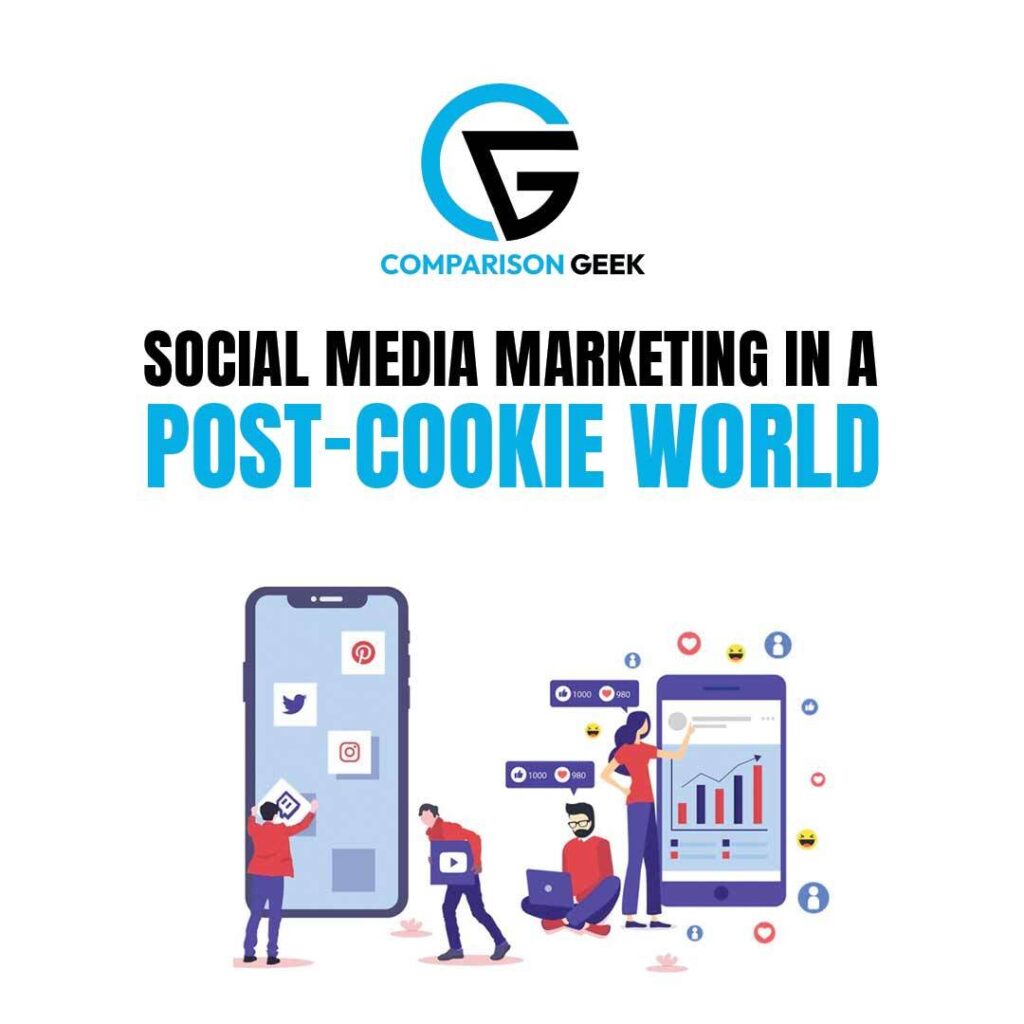What You Need to Know:
Well, social media marketing is indeed changing day by day, now we have entered the post-cookie world. This has brought a new shift in digital marketing that has brought several challenges for brands and businesses. Because before this, third-party cookies were used for monitoring user data and targeting advertisements; nowadays, marketers need new strategies.
Everything has changed with the post-cookie world; hence, you need to know how to adjust to the new changes, as it will not hamper your marketing performance. In this article, we will look at what you need to do for making social media marketing effective in the post-cookie world. For a deeper understanding, you can check out articles like What is the Post-Cookie Era? and How to Adapt Your Marketing Strategy in a Post-Cookie World. Additionally, it’s crucial to consider the Importance of Data Privacy in Building Consumer Trust and explore effective First-Party Data Strategies for your marketing efforts.
Table of Contents
ToggleWhat Is a Post-Cookies World?
It will be a post-cookie world wherein third-party cookies will not be accessible to use by websites and advertisers to collect data of users. This is mainly due to the fact that most companies have opted out to use third-party cookies or have decided against using them due to the sheer number of laws regarding user data privacy and its protection.
For instance, Google Chrome has emerged as one of the most widely used browsers lately and has reached a conclusion that it will not allow third-party cookies until 2024. This may greatly impact the way in which digital marketers deploy advertisement and social media drives.
It will indicate that brands must seek alternative methods of acquiring knowledge about the consumer.
Implications on Social Media Marketing:
Such controls could nullify the third-party cookies as a way of allowing marketers to track habits and interests of target users, making social media marketing more difficult in a post-cookie world. However, it is still sufficient enough that the amount of useful information is found on the social media platforms and contained in sites such as Facebook, Instagram, and Twitter for improving their marketing strategies.
- Use of First Party Data: Removing cookies led to the prominence of first-party data. First-party data are information provided directly by the user on your website or platform. For example, this information includes email addresses, phone numbers, and purchase details. Proper use of the information brings better success to social media marketing.
- Content personalization: More importance is given to the personal content not using cookies. For intensifying social media bonding with their customers, one can choose the needed content that is relevant to their interest and required needs.
Privacy Laws and Consumer Expectations:
People are nowadays deleting cookies in a manner that alters how such alterations are affected within privacy laws and consumers’ expectations. Consumers are being more careful about the information to give and the way to provide it to brands. Brands also have to be honest if they want to keep customers’ trust.
- Explaining Privacy Policy: This is due to the fact that brands must be able to depict a clear and transparent explanation of privacy policies to gain the trust of consumers.
- Opt-in approach: Ensuring permission from the users before allowing access to one’s data has increasingly become the need of the hour. “Opt-in” refers to a situation where users must agree to give out their consent to enable brands to access their data.
- Privacy First Marketing: Privacy-first marketing is the new approach where consumer privacy is given the highest priority to importance. Using this can better prepare brands for future circumstances.
Value-based Marketing and Branding:
Day-to-day, the importance of value-based marketing is surging in a post-cookie world. Brands need to bring value to the consumers, so those consumers remain engaged with the brand.
- Educational content: Educational content that you are serving to your customers can provide new information handy for them. This would portray your brand as an authentic source and which people have faith in it.
- Purpose marketing: In this, some purpose of social or environmental is given to your brand. This will help in gaining emotional equity with the customers.You develop communities on social media where your brand customers can find and share their opinions about your products and services. Such communities can lead to increased loyalty to your brand.
Future Strategies:
There seems to be an aspect of change around the corner; everything about social media marketing ends with cookies. And it would be necessary for marketers to shift their focus far more toward first-party data, a ‘Privacy-first, approach, and more personalised content.
In collection of data differently:
- Artificial Intelligence and Machine Learning: With AI and machine learning, you’ll get better insight into consumer habits and preferences, and you can be more responsive with the content.
- New advertising strategies: New avenues involving video ads, influencer marketing, and content marketing are sure to take further leaps in the world of social media marketing.
Advantages of Social Media Marketing Post-Cookies:
Social media marketing without cookies can be a great vehicle in maintaining direct communication with the influencers as well as the customers. There are quite a few major benefits:
- Privacy to users: There will be no cookies; therefore, the privacy of the user will be respected much better. Approaches of social media marketing are taking approaches straight from the consensus of the user. Therefore, it brings consumers more confidence that their information is safe. More authentic interactions.
- More organic interactions: Absence of cookies reflects the failure of reaching customers that leads to more real and human interactions. This helps in developing a true and honest relationship between the brand and the consumer.
- Brand recall: Cutting down reliance on cookies will allow brands to communicate the message and values effectively towards the consumers. Therefore, this brings about higher brand recognition and creates a harder impact on customers.
- Marketing: Even without cookies, you can target marketing better through influencer marketing, localization, and other data sources. That gives an opportunity for attaining a more specific niche market.
Conclusion:
A post-cookie world means new challenges and opportunities that will bring new changes with it in social media marketing. The biggest changes for most companies, of course, will be the loss of third-party cookies; however, first-party data, a privacy-first approach, and personalised content are on the rise and provide far more opportunities for brands. Such changes can help you if you desire to make marketing more effective and closer connect with your customers while taking innovative strategies.
It means that at such a time when the age of social media marketing hammers toward not relying upon cookies, this is the age where direct and honest relationships with consumers is the key to success.
For more insights on effective marketing strategies, check out Content Repurposing: How to Maximize Your Marketing Efforts and SEO for Beginners: Everything You Want to Know About Starting in 2024.


